Modes of Thinking Affect
Summarizing and working through the concept of affect, it is helpful to think of it in four different ways. The first two take affect to be a material thing, firstly understanding it as a phenomena and secondly as a force; then it can be addressed directly as a theory before finally understanding affect as a mode of expression. So […]
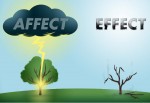
Affect
Affect is at once an actual phenomenon and a virtual force, a material effect and an immaterial disposition. As a conception, it pairs dangerously close to our understandings of emotion and therefore exists as something familiar and seemingly knowable despite not having objective tangibility. As a result of this it is often rendered academically in fairly abstract and philosophically […]

Activism and Academia: Contradictory Spaces?
Many of the remarks above gesture to the complications of working in the 'third space' between activism and academia, not least because the academy is traditionally suspicious of highly engaged, participatory, and transparently ethico politically 'committed' inquiry, but also sometimes because activists are (often justifiably) suspicious of what these academics are 'really' after (ultimately career boosting or wishing to make a […]
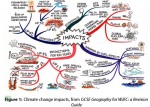
Responsible Activist Geographies
First, the motivation of activist geographies is to develop practices aimed at social transformation rather than merely the 'production of knowledge' and/or the 'solving' of 'local' problems. Activist research moves beyond the acquisition, cataloging, ordering, and the publishing of information toward jointly producing knowledge with resisting others to produce critical interpretations and readings of the world which are accessible, understandable to […]
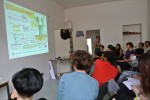
Activist Methodologies, Collaborations, and Everyday Life
This eruption of activist and related geographies within the discipline is taking place at a time in which there is increased social mobilization and conflict around the world. Issues such as globalizing capitalism, trade agreements, failed development, neoliberalism, and the war on terrorism have been met by opposition ranging from the Zapatista rebellion in Chiapas, itself both locally played out and stretching […]

Toward More Fully Activist Geographies
Since the 1970s, Marxist, feminist, and, more broadly, radical and critical geographers have produced outstanding scholarship and theorizing, substantively researching sociospatially constituted oppressions, inequalities, and injustices. Yet, there has often remained an uneasiness about the relative disconnect between such work and the potential of the discipline to contribute genuine activist interventions aiming to right the wrongs of such oppressions and the […]
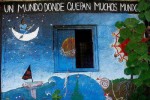
Activist Geographies
Geographers have been activists in two primary ways. First, geographers have constructed new theories and explanations for social phenomena that have both substantially altered the ways that students and researchers understand problems, and the ways that academia evaluates research. Geographers, and other social scientists, have challenged the status quo in scholarly approaches, methods, and substantive areas by offering conceptual frameworks that have highlighted the […]

Geographies of Activism Types and Catalysts of Activism
Activism centers on a variety of different issues, can be reformist or radical in its objectives, and consists of distinct methods ranging from peaceful civil disobedience to violence. The catalysts for activism often center on visible and substantial change in social values, political debates and decision makers, economic activities, or urban land use patterns, but require awareness or knowledge of the […]
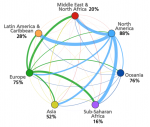
Network Geographies
ANT can be said to be proposing network geographies. There are two aspects of this proposal that need mentioning: first are the basic characteristics of the geographical imagination advocated by ANT, and second is the methodological implication of this perspective for geographical research. Topological World Space and time are central to ANT. Actor-networks necessarily depend on nonhuman actors […]

Moves into Geography – Bypassing Dualisms
The move of ANT into the realm of human geography happened parallel to a general conceptual development in the field. This was not least expressed by the cultural turn, the general rise of feminist studies to prominence, and a broad relational view as, for instance, framed in the non representational theory. The import of ANT perspective into the fields of […]
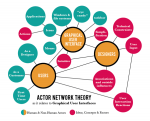
Actor-Network Theory
Material Relationalism The origins of actor-network theory (ANT) can be traced to science and technology studies (STS) and sociology of scientific knowledge (SSK) in the early 1980s. The approach has from the start been especially associated with the figures of Bruno Latour, Michel Callon, and John Law, who are much inspired by the French philosophers Michel Foucault, Michel Serres, Gilles Deluze, and […]

Activist Geographies – Introduction
Activist geographies are concerned with action, reflection, and empowerment (of oneself and others) in order to challenge oppressive power relations. As a fusion of theory and practice (praxis), activist geographers seek to forge mutual solidarity with resisting others – communities, groups, social movements, or nongovernment organizations who are challenging various practices of dominating power – through critical collaboration. The objectives can […]

Activism
Introduction Activism is most commonly associated with collective or group action by ordinary people, usually volunteers, who come together to change what they consider to be unacceptable or unfair circumstances. These individuals come together in a shared belief about the nature of the problem, and the means to best address the issue, using political opportunity structures to enable their influence on […]

human geography
HUMAN GEOGRAPHY FOCUSES on interpreting and describing the various ways in which humans in all places and cultures adapt to and possibly modify their natural geographic environments. At the local or national scale, human geographers look at how economic, political, and cultural issues are related to spatial organization in different parts of the planet. How […]